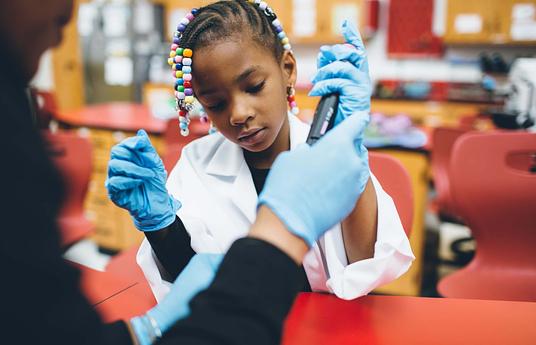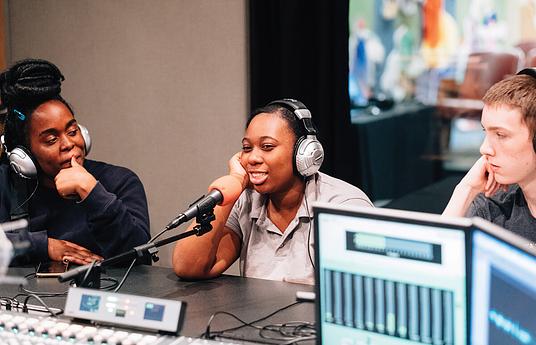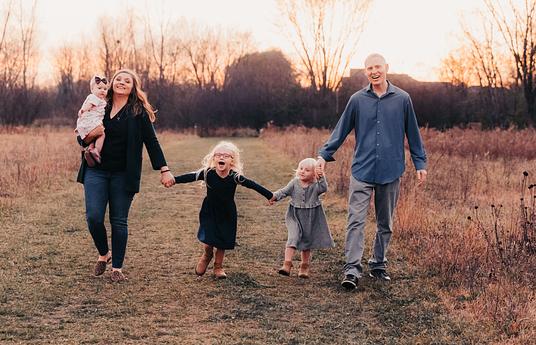Ashley Lynn Priore, Country Lead for the US and the Founder, President, and CEO of Queens Gambit, a nonprofit organization using chess as a catalyst for change. They use chess to teach strategic leadership, and in turn, give youth the tools they need to change the world.
I’m writing this from my office in Pittsburgh, PA - the home of the Steelers, Fred Rogers’ Neighborhood of Make Believe, and August Wilson’s childhood home. My window looks out into the Cathedral of Learning, the cornerstone of the University of Pittsburgh where I’m currently a senior majoring in English and Political Science.
I give you this background because Pittsburgh is so important to me. It’s where I grew up, started my career, and continued my education. It’s also a place where Remake Learning flourishes and youth create innovative organizations. Pittsburgh is on the cutting edge of education, specifically unique ways for youth to learn, grow, and engage in their environment.
What was the moment, realisation or a person that made you excited about education in the first place?
My first recollection of excitement for education was from my mother. She homeschooled my siblings and I during our early years. I took part in engaging and exciting lessons ranging from raising caterpillars into butterflies to writing about the history of the United States.
For too long, education has been about what others think young people want to learn about. My work is grounded in giving youth the opportunity to discover their own passions and learn what they want to learn.
My day was full of activities that I had a passion for including chess and reading. I was challenged with extensive math problems and science experiments, and our house was a place of play, imagination, and academic exploration. You can read about my educational experiences in homeschool here. I share this background because, from the start, I knew education as a way to discover my passions and excel in fields I wanted to learn about. For too long, education has been about what others think young people want to learn about. My work is grounded in giving youth the opportunity to discover their own passions and learn what they want to learn.
Where do you see the biggest opportunities for innovators in your region?
Pittsburgh is doing incredible work remaking education and focusing on empowering all communities. I want to highlight two special innovations that exhibit youth-focused organizations. Global Minds Initiative is a for-youth, by-youth organization created to combat the issues of cultural intolerance and discrimination through an after school tutoring program between English-as-a-Second-Language (ESL) and Native English Speaking (NES) students. Global Minds serves as an educational support system for ESL students while educating NES students about other cultures, in order to create more globally-minded young leaders.
Youth Express captures and distributes original writing, music, reflections and art from Pittsburgh-area youth and is a program of SLB Radio Productions, Inc., a non-profit devoted to amplifying ideas and reflections of youth and other under-represented voices.
What are the challenges that slow down innovation in your context?
While Pittsburgh continues to thrive as a health care empire and university-driven city, we are lacking youth voice and leadership. No, the youth voice isn’t about inviting young people to have a seat at the table, it’s about making sure they have a seat in the first place.
The biggest opportunities for innovators right now is to be a part of this youth movement.
In 2019, I founded Y’22 (A Youth on Boards Movement) to train, recruit, and empower young people to join nonprofit boards. We can take this movement and apply the same formula in schools, community centres, and all of the wonderful innovations in the HundrED community. Intergenerational diversity is the understanding of other age groups’ perspectives and actions, creating empathy and unity in a work environment. Numerous studies have shown that those who have a variety of age groups in working environments produce more innovative and sustainable ideas and share increased productivity.
What little or big part do you want to play in improving education?
I want to serve as a connector and consultant. My goal is to make your ideas, goals, and aspirations a reality. Too often, people are afraid to talk about intergenerational diversity because they are afraid of saying the wrong thing or not knowing how to tackle a topic like youth empowerment. That is why I’m here. It all starts with having a discussion and engaging in conversations that might make us uncomfortable.
Who would you like to see joining the HundrED community to accelerate the pace of change?
I would like to see educators and students (everyone under 25 years old) join this movement to re-envision the state of education across the globe. Without the support and direction from teachers, we, at HundrED, can’t do our very best job. Without the support and direction of young people, we aren’t doing our job at all.
How does a future worth aspiring look to you?
The other day I asked my 2nd-grade students what they want to see in the future. One student said, “I hope everyone can play chess.” While everyone playing chess and understanding its educational value would make my job easier, I think what she meant was everyone should have the opportunity to pursue what they are passionate about.
I hope, thirty to forty years from now, pursuing your passion isn’t something that has to be done on the side or after-school, but is a part of one’s curriculum and can be cherished every day. When we empower ourselves, we empower others.
I hope, thirty to forty years from now, pursuing your passion isn’t something that has to be done on the side or after-school, but is a part of one’s curriculum and can be cherished every day. When we empower ourselves, we empower others. Who wouldn’t want that?
- Check out Ashley's feature in Forbes!
- Connect with Ashley on LinkedIn
- If you are interested in joining the HundrED community, you can find more information here.




